Save the date!
18 April 2023
We are delighted that, for the third year running, Tiyeni has been selected to be part of the Big Give's Green Match Fund. This means that from 20 to 27 April your donation will be doubled.
Catchment Management - Feeding Malawi
This year, your donation will be used to support our integrated catchment management project in Emsizini.
Integrated catchment management is an approach that looks holistically at improving and protecting water, land and vegetation health through community-based collaboration.
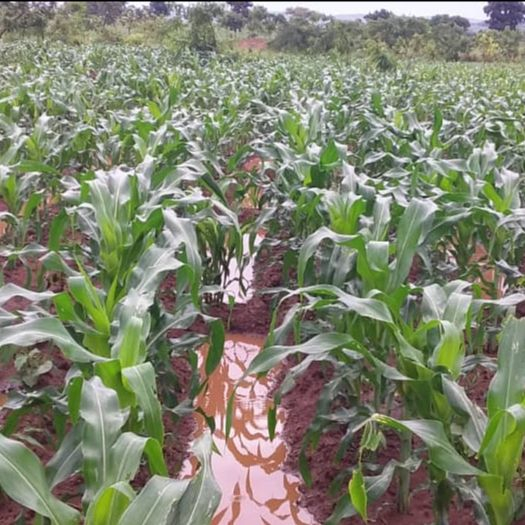
We are training farmers to implement integrated catchment management with Deep Bed Farming. Erosion is contained, more water is available, and the land becomes fully productive again. Through this project, with your help, we will empower more than 1,000 farmers to look after the soil and water in harmony with the natural environment in the Emsizini area.
The campaign aims to harness all the rain in the Emsizini Catchment, North Malawi, where Tiyeni runs an ongoing project. We will also support more than 1,000 farmers to break the hardpan (compacted soil layer), and to create and use raised footpaths to prevent them from becoming watercourses during rainy periods.
We will train farmers never to leave bare soil facing the sky by teaching the use of agroforestry, cover crops, mulches plus no-till farming (following bed creation). In addition, this technique will promote water management with excess water from slopes, house roofs, hardpan areas around settlements, roads, tracks and paths.
And we will train lead farmers (more than fifty per cent of whom are women) in Emsizini to take a leadership role in their community and take responsibility for training other farmers. Typically, a lead farmer will train between five and fifteen follower farmers, ensuring the correct techniques are known and followed. The campaign link is below. You can help by sharing the link.
Spread the word
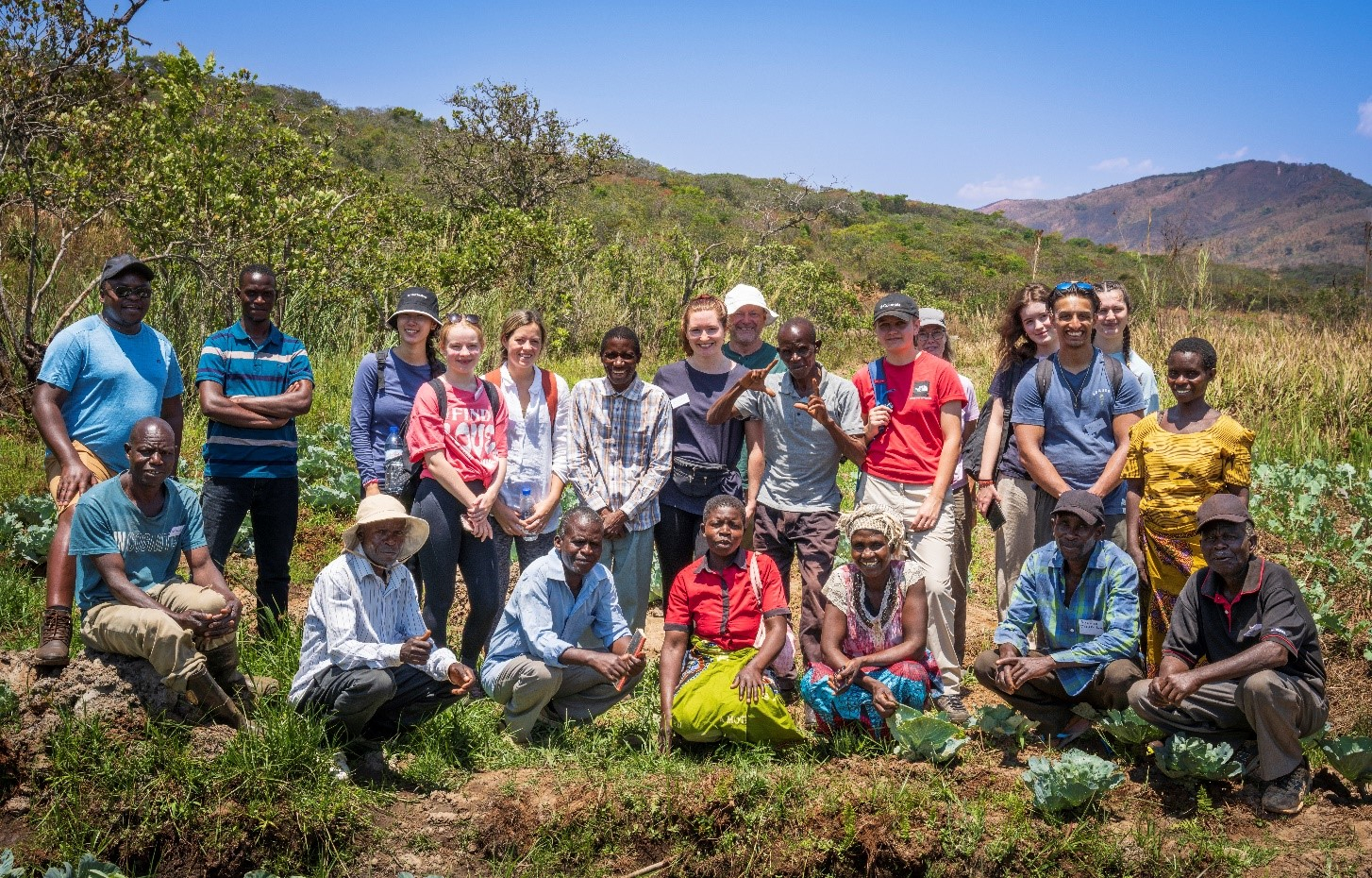
Experiencing international development through fieldwork
Dr Alan Dixon, previous Tiyeni trustee and Principal Lecturer in Geography at the University of Worcester, led a group of final year undergraduate students on a field course in Malawi in late 2022. Here he reflects on that experience.
One of the key challenges I’ve faced over the years in teaching international development, is how to facilitate a learning experience for students that is immersive, experiential, and somehow manages to convey an authentic sense of the positionality of people in different and rapidly changing societies and environments. This is especially important given that a major critique within the discipline centres on the negative consequences of actors in the global north (not least white middle-class male academics like myself) perpetuating harmful stereotypes through their subconscious othering and Eurocentric gaze. How then can we challenge this, decolonise classroom-based international development, and ultimately empower deep learning among students that can lead to long-term change?
I do what I can in the classroom, and draw (perhaps rather too heavily) on my own experiences of working with local people in Ethiopia, Zambia and Malawi, but for many years I couldn’t help but feel a little envious of colleagues who could simply pop down to the local riverbank or book a coach trip to the Cotswolds for a spot of hands-on experiential fieldwork with students. After all, fieldwork is in the DNA of Geography.
All of this changed when I was able to develop a residential field course to Malawi for our final year students, presenting an opportunity for them to experience first-hand the challenges of sustainable development among ‘real’ development stakeholders – from subsistence farmers and community leaders on the front line of climate change, to international conservation and development NGOs. Critically, I was determined that this field course should not simply be a ‘show and tell’ exercise, but one where students interact with people, build partnerships, and engage in participatory research activities that facilitate the mutual exchange of knowledge. With the exception of the two COVID-19 years, we were able to run this field course annually, and most recently in November last year.
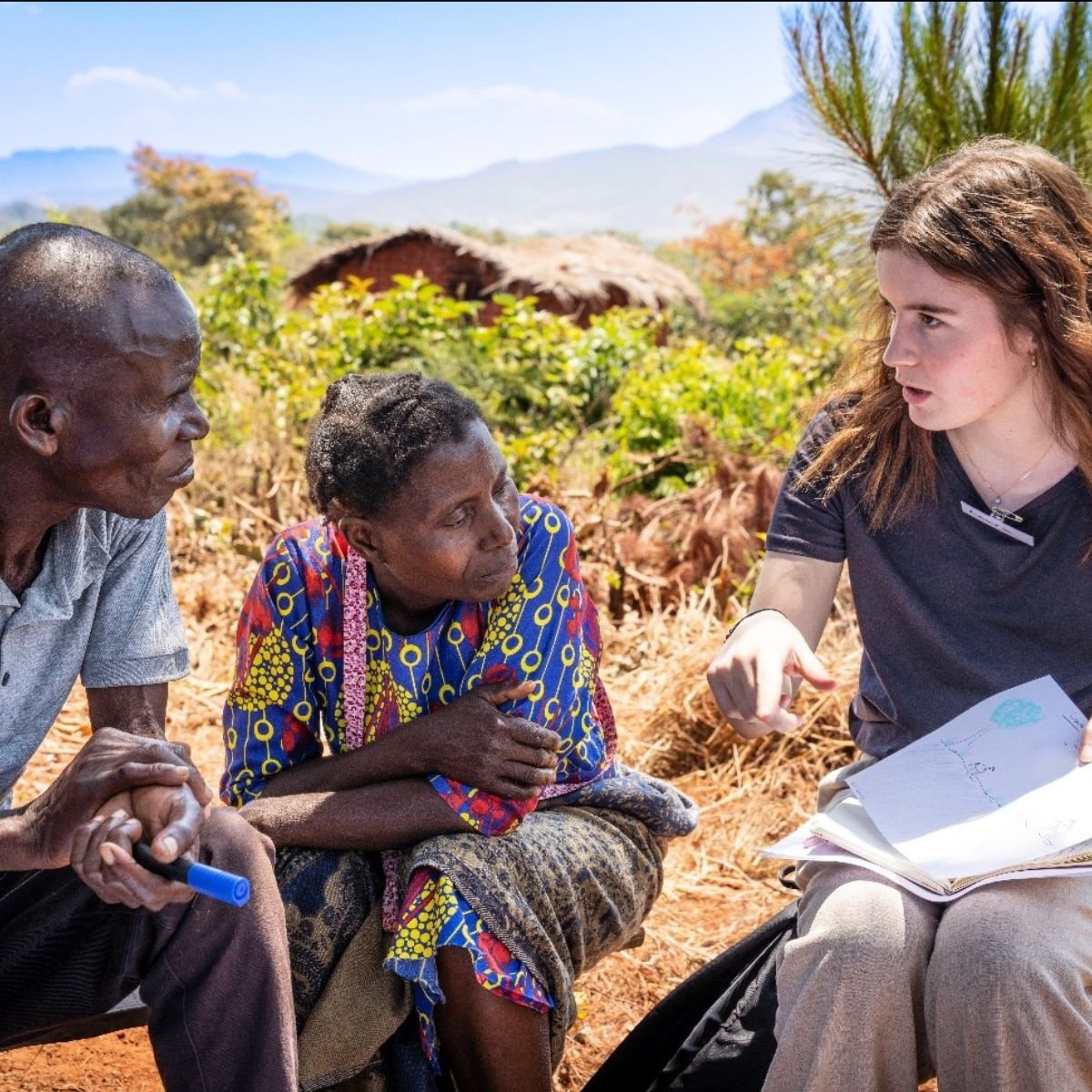
The participatory nature of the field course was exemplified in our visit to Kankhulukulu, a small farming community where colleagues and I have previously undertaken a participatory action research project. Here, the aim was to implement a ‘Functional Landscape Approach’, building capacity within the community for the sustainable and adaptive co-management of their catchment and vitally important wetland areas.
Four years on from the end of that project, our field course students got to meet the original participants and find out about their changing livelihoods, before the roles are then reversed and the community members interrogate our students about their lives in Worcester. In many ways, the latter is one of the key learning moments of the field course – it affords students a glimpse of what really matters to these ‘development beneficiaries’ beyond their immediate livelihood and environmental concerns, but it also makes students appreciate what it is like to be repeatedly asked questions about the more mundane aspects of their lives. Who would’ve thought that people in Kankhulukulu share similar anxieties and passions to us?
As well as the Kankhuluklulu visit, this year our students engaged in some digging in the field with Tiyeni, went on an elephant safari (always popular!) with INGO African Parks at Nkhotakota wildlife reserve, and had a discussion with a fishery management committee on the shores of Lake Malawi with staff from NGO Ripple Africa. Then there is simply the experience of being in Malawi; the attention, the heat, the bugs (in their widest sense), the long days of travelling on dirt roads, the ‘actually quite surprising’ level of development, and perhaps the biggest challenge of all for our students – intermittent Wi-Fi access.
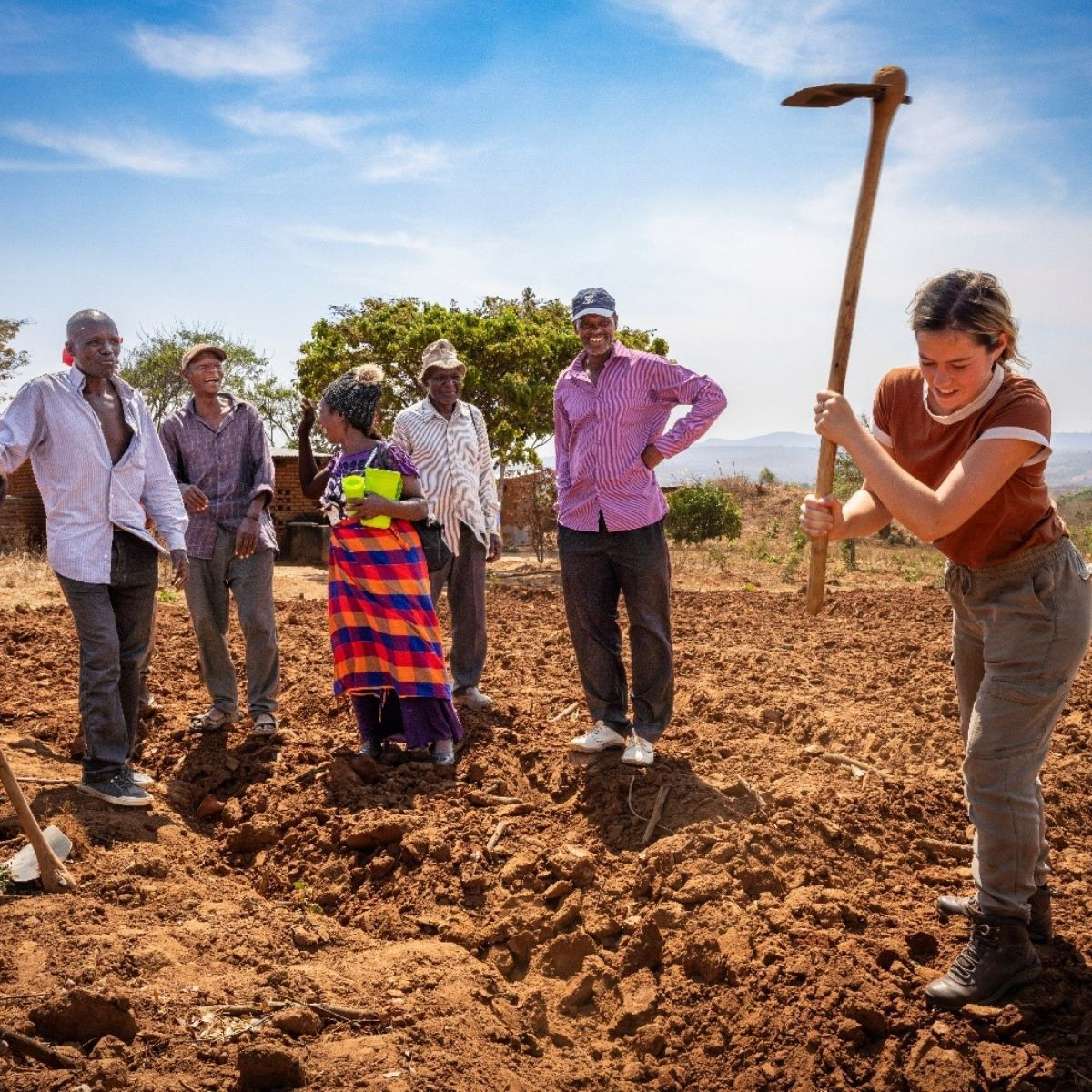
So has this experience empowered deep learning among our students about the challenges of delivering sustainable development in a country like Malawi? We’re now a few months back from our visit, and from the chats we’ve had so far the answer, perhaps unsurprisingly is, ‘yes’; the trip really has had a profound impact. In terms of academic learning, students have talked about how they now appreciate the complex strategic and logistical challenges facing the NGOs we visited, especially in terms of balancing donor and beneficiary needs.
They’ve also learned how difficult achieving livelihood security is in this part of the world – from the actual labour demands of swinging a hoe, to getting produce to market during a pandemic. Five weeks prior to the field course we begin the module by discussing how environment and development have often been treated as separate entities, yet by the end of the field course students struggle to separate the two. Job done; we’ve empowered holistic thinkers and (hopefully) learners for sustainable futures.
And then there is the personal development and resilience that the field course has built. Students have talked about culture shock, and both the anger and sadness that accompanies experiencing first-hand the kindness and generosity shown by some of the world’s most impoverished people. They have reflected on their own lifestyles here in the UK, their privileged positionality within Malawi, and how they had to adapt on a daily basis to events and situations very much outside of their comfort zone. A life-changing experience then? Yes, I’d like to think so.
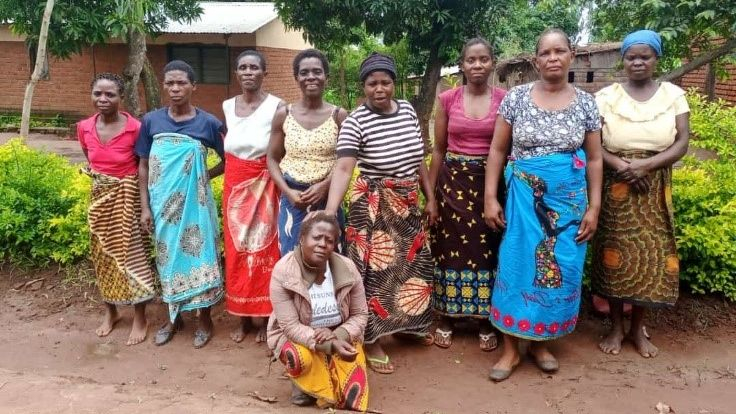
Let's Celebrate Women
Following International Women’s Day last month, we wanted to shine a spotlight on just a few of the amazing women we work with in Malawi, representative of both women farmers and our own colleagues at Tiyeni.
Chisomo Group is formed of twenty-five Deep Bed farmers who adopted the method over the 2021/2022 growing season in Njema Village, Boma, Mulanje district. The women adopted Deep Bed Farming when their lead farmer saw the technology in practice at Boma. The process of converting the land was easy because they prepared their land as a group.
A long dry spell followed by heavy rains during Cyclone Anna in 2021/22 ruined a lot of maize plants and caused hardship to the general community. However with an average land size of 0.2ha, most women with Deep Bed land harvested three to four bags of maize. This was a great relief to their households as they had previously harvested one or one and a half bags of maize on the same plot (on ridges in former years). The women also harvested more pigeon peas than normal, with bigger trees carrying more pods so that each group member harvested an average of four bags of pigeon peas. Some produce was eaten at home, but most was sold and the money was used for household needs.
The results prompted group member Mise to make Deep Beds in her Dimba, where she practices winter cropping. Mise raised an additional MK60,000 from the sale of green maize and harvested three tins of dry maize (1.5 bags), which was a great accomplishment. With the additional money she was able to buy household necessities, could afford to cook better, more nutritious meals for her family and could pay school fees for her children.
Mise’s advice to other women farmers who are thinking about adopting Deep Bed Farming? “Many people have been wondering what variety I use to get the beautiful maize. I have been advising them that it is not about variety but method of cultivation. I show and explain how Deep Bed Farming is different from ridges, how it promotes root development from tilling and how the water conservation helps the crops. Many more farmers are expressing interest to start using Deep Bed Farming."
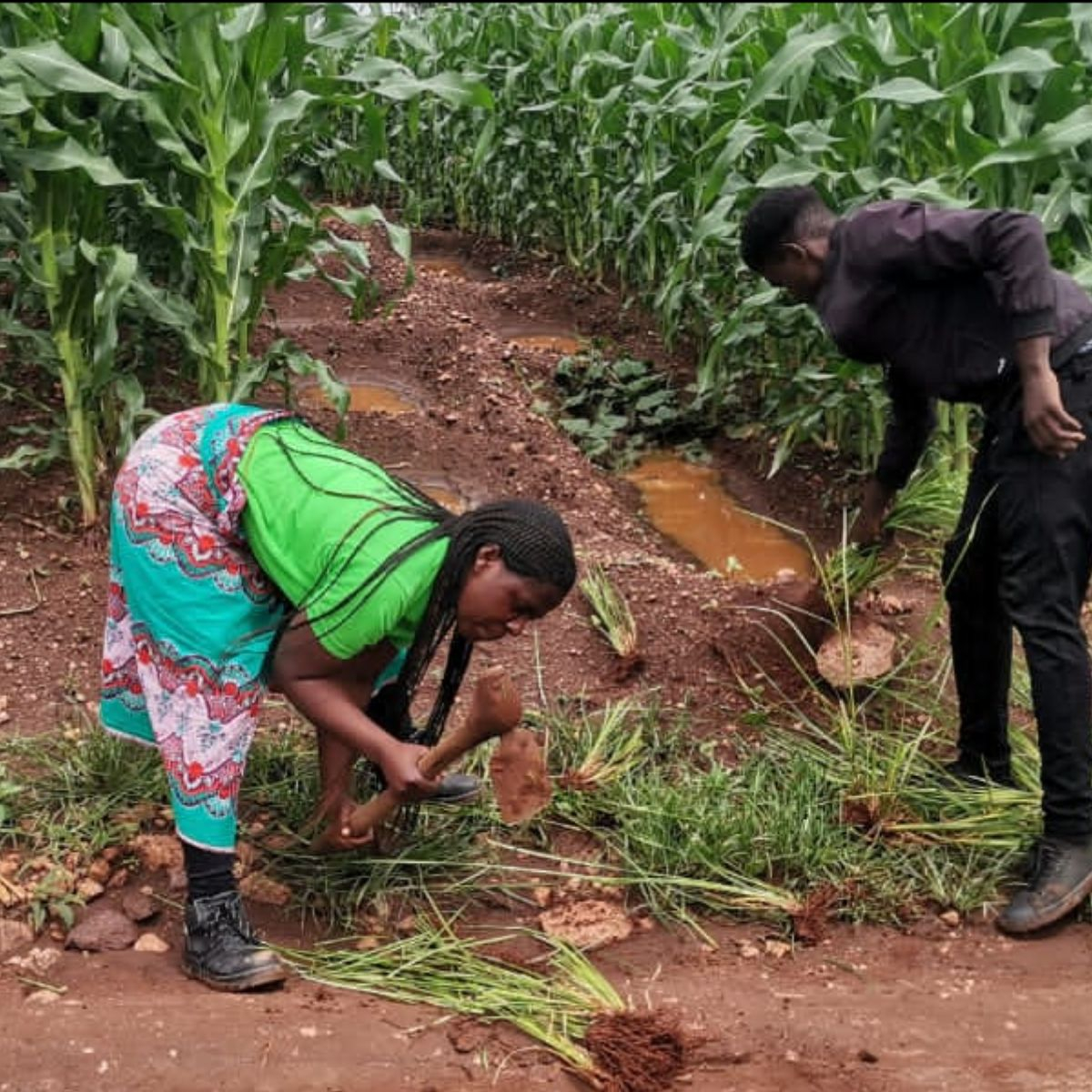
Chancy Msiska is the newest female member of staff in Tiyeni. With a degree in Agricultural Extension from Lilongwe University of Agriculture, she initially joined Tiyeni as an intern before securing full-time employment as a Field Officer in Chiwamba, Lilongwe district earlier this year. Congratulations Chancy!
Chancy has a real passion for agriculture. By day she trains and supports farmers with Deep Bed Farming, planning field activities with them and monitoring and capturing data and then she goes home to her own small farm. Her ambition is to be a commercial farmer one day.
She doesn’t have a specific female role model but says she admires “women who are visionary and have passion for agriculture and climate change. Women who are working hard to fight food insecurity. Women who share love with those who are in need. Women who have a big heart. Women who provide a ladder to fellow women.” Well said.
Martha Chilongo is another impressive woman who has recently joined Tiyeni. When she joined the organization last year, she became the first women to work in Tiyeni’s main office in Mzuzu. As Administrative Assistant, she is the office’s linchpin, organising internal and external events, managing travel, making payments and answering all manner of queries. Somehow she also finds time to study for a part-time MBA in Project Management.

Martha wants to see a better office working environment for all women and thinks the issues faced by women in Malawi (gender discrimination, unequal pay, limited opportunities for advancement) are the same as in many, many other countries. Although Tiyeni isn’t perfect, it provides opportunities for employees to learn new skills and develop professionally. It is also known for its supportive and collaborative work environment, which fosters teamwork and encourages innovation.
Martha says her all-time role model is her mother, Veronica Gondwe Chilongo who has “a high level of creativity, risk-taking, and a willingness to work hard to achieve her goals and the development of her community through job creation”.